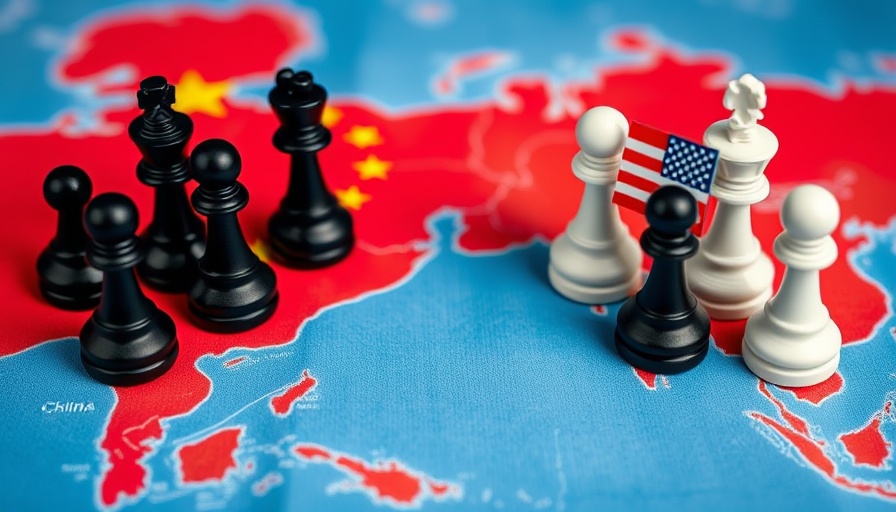
Trump's Tariff Ultimatum: What It Means for Global Markets
The economic landscape is once again shaken as President Trump issues a stark ultimatum demanding China withdraw 34% tariffs or risk being hit with a staggering 50% tariff rate on U.S. imports. This aggressive stance has sent shockwaves through global markets, causing significant downturns as fears of a recession grip investors. This situation paints a complex picture where short-term panic might overshadow potential long-term gains, creating a volatile atmosphere for both domestic and international markets.
Allies Seek Alternative Trade Deals Amid Escalating Tensions
In the face of Trump's threatened tariffs, U.S. allies such as Japan and the European Union are scrambling to seek alternative trade agreements. The uncertainty surrounding American trade policies leaves many feeling vulnerable. As these allies search for new partnerships, this could lead to shifts in global trade dynamics and alliances, potentially sidelining U.S. influence in favor of more stable economic partnerships.
Understanding the Impacts: Corporate Warnings and Market Reactions
Corporate leaders are now sounding alarms about the ramifications of Trump’s tariff threats. With supply chains already stressed by previous tariffs and trade wars, another wave of tariffs could exacerbate existing market volatility. Executives warn of potential layoffs and increased production costs, passing expenses on to consumers, which highlights the intricate connection between trade policy and everyday economic realities.
Key Takeaways for Consumers and Investors
As these developments unfold, consumers and investors should stay vigilant. The potential increase in tariffs may affect everything from product prices to market stability. Understanding how these trade advancements could affect personal finances and investments is crucial for informed decision-making.
Conclusion: The Long-Term Outlook
While current sentiments may lean towards fear, it is essential to focus on the broader implications of tariffs and international relations. President Trump's administration continues to prioritize an America-first economic strategy, but the intricate web of global trade necessitates a watchful eye and proactive approach. Stakeholders should adapt and prepare for fluctuating markets while seeking opportunities in the face of adversity.
 Add Row
Add Row  Add
Add 




 Add Row
Add Row  Add
Add 



Write A Comment